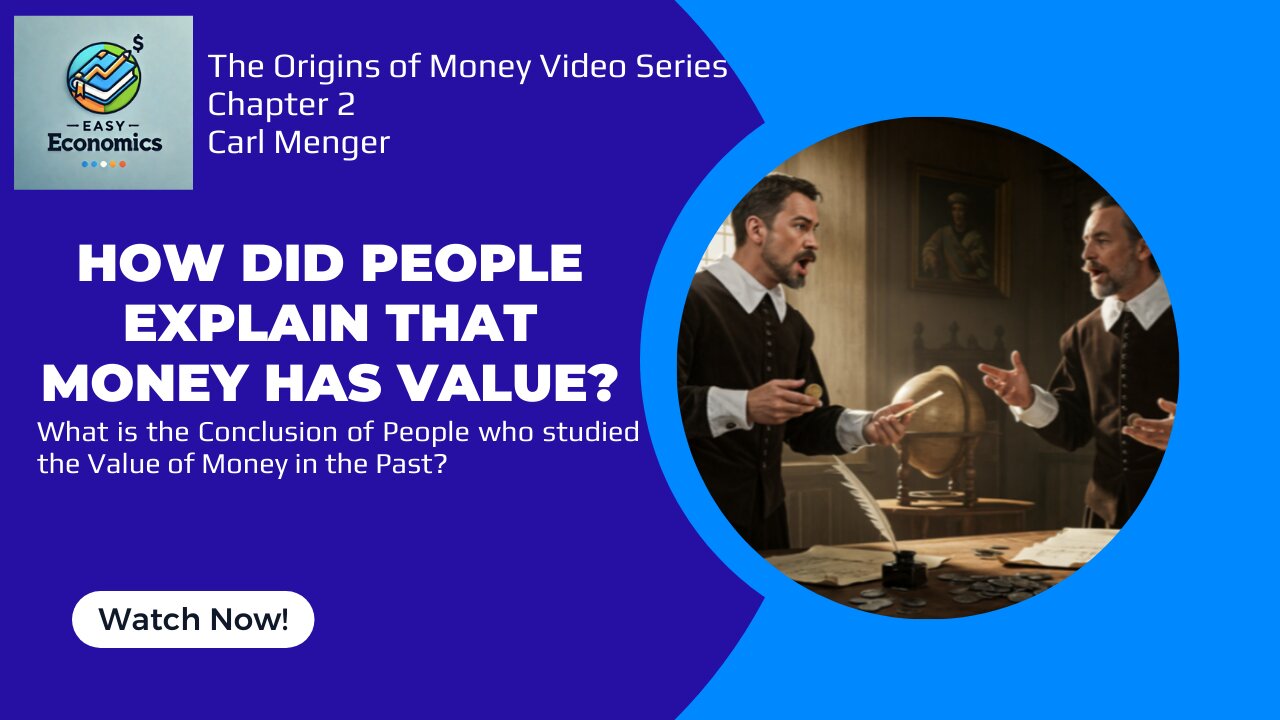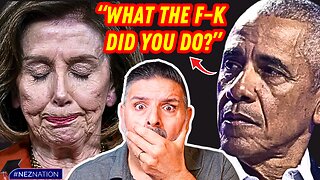Premium Only Content

The Origins of Money by Carl Menger Chapter 2 - Past Attempts to Explain why Money has Value
Read the original book: https://amzn.to/4ipNwOh
Why does money have value? Throughout history, philosophers and economists have struggled to explain why people accept certain items like gold, silver, and coins as money. Early thinkers, including Plato and Aristotle, believed that money’s value came from legal agreements or government declarations. However, this theory raises more questions than answers. Why would precious metals be chosen universally across cultures without any historical record of a formal agreement? Thinkers like John Law and Adam Smith focused on the adaptability of precious metals for trade, but even that doesn’t fully explain why they became universally accepted. This video explores the past attempts to explain money’s value and why no single theory has fully solved the mystery. We’ll uncover why this debate continues and what it reveals about the nature of money itself.
Questions Answered:
-Did money’s value come from government decree or natural market forces?
-Why were precious metals chosen as money?
-Did Aristotle and Plato’s theories on money hold up over time?
-What did John Law and Adam Smith contribute to the theory of money?
-Why isn’t there historical evidence of a formal agreement on using money?
-How did money evolve from simple trade and barter?
-Why do some commodities become money while others do not?
-Is money fundamentally different from other goods?
-What role do government and market forces play in determining money’s value?
-Why hasn’t a single theory of money’s value been universally accepted?
00:00 - Introduction to Past Attempts to Explain why Money has Value
00:12 - The Lack of a Satisfying Explanation of the value of Money
00:34 - The General Agreement or Legal Decision Theory of Money
01:36 - Doubts About the Legal or Social Explanation
02:13 - The Role of Precious Metals as Money
03:14 - Conclusion
#HistoryOfMoney #MoneyTheory #WhyMoneyWorks
-
 17:25
17:25
BlackDiamondGunsandGear
1 day agoCustom Building the Cheapest MP5
13.6K1 -
 2:07:20
2:07:20
BEK TV
1 day agoTrent Loos in the Morning - 11/06/2025
16.8K1 -
 8:10
8:10
The Shannon Joy Show
18 hours agoShould we even VOTE anymore?
17.1K23 -
 59:34
59:34
Dialogue works
1 day ago $0.02 earnedMohammad Marandi: It’s WAR: Iran’s Supreme Defense Council ACTIVATES –Hezbollah REFUSES to Surrender
49.9K11 -
 10:23
10:23
TheSaltyCracker
18 hours agoMuslims Immediately Threaten New Yorkers After Zohran Win
43.7K468 -
 18:40
18:40
Actual Justice Warrior
18 hours agoMamdani Pledges To DESTROY New York
30.7K76 -
 28:53
28:53
iCkEdMeL
17 hours ago $0.06 earnedBREAKING: 9 DEAD After UPS Plane BURSTS Into Fireball at Louisville Airport
35.1K7 -
 20:52
20:52
Professor Nez
20 hours agoThe TRUTH is Actually WORSE than we Thought...
24.6K25 -
 8:59
8:59
MattMorseTV
19 hours ago $0.08 earnedTrump’s DIRE WARNING to the Senate GOP.
82.7K90 -
 2:13:33
2:13:33
Side Scrollers Podcast
22 hours agoAsmongold SUED for Emotional Distress + Hasan REJECTED+ INSANE Plane Crash + More | Side Scrollers
96.2K30